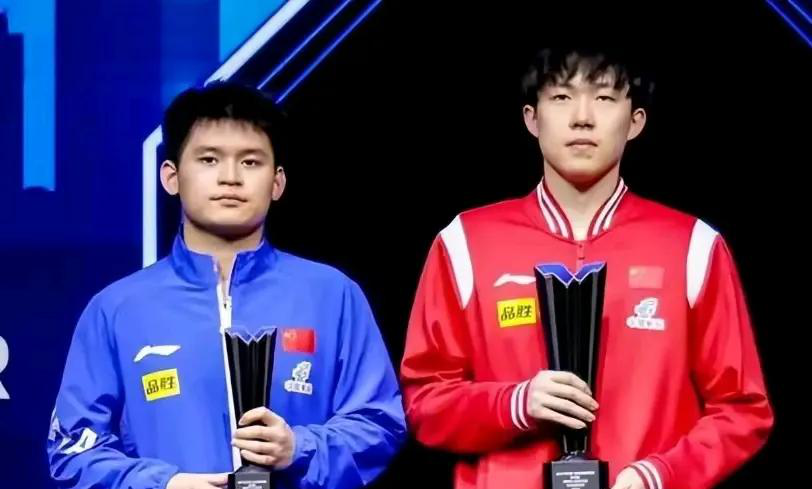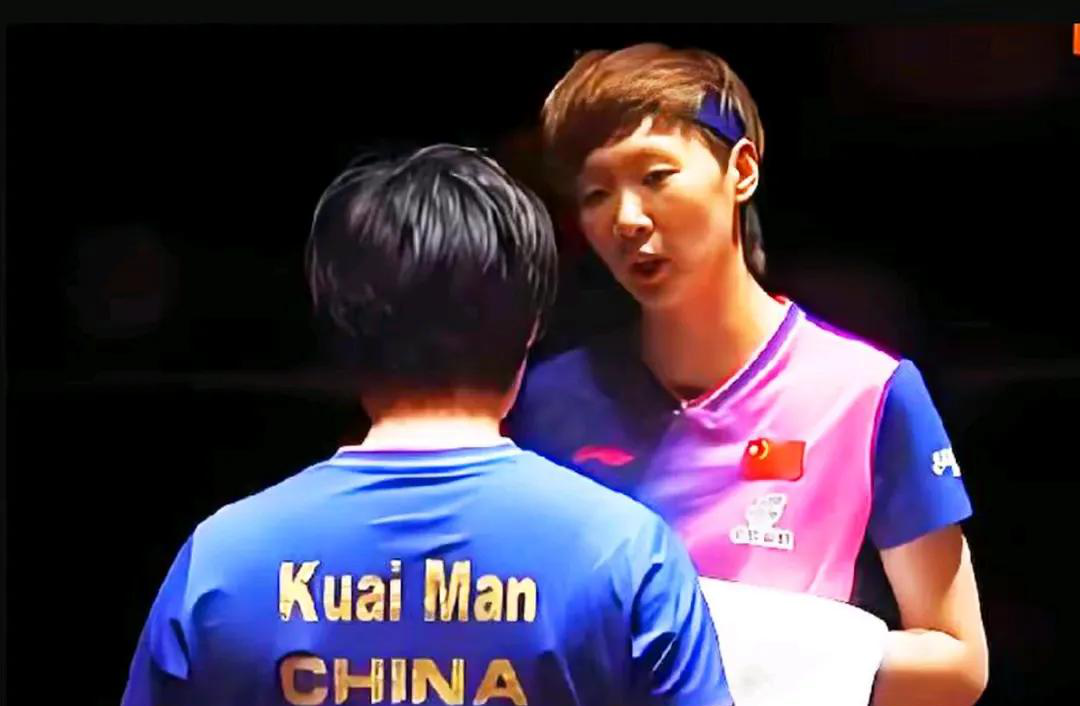The Chinese national table tennis team has made significant changes to their doubles lineup for the 2025 Singapore Grand Slam event. All three main players have withdrawn from the competition, and new pairs have been formed for both men's and women's doubles, which feels quite different from previous configurations.

Wang Chuqin, currently the strongest left-handed player in the national team, always manages to produce unexpected results in doubles matches. His serve is particularly troublesome for opponents, especially when paired with a right-handed player, as their positions complement each other and their attacking routes do not overlap.

Lin Shidong, although not having partnered much with Wang Chuqin in doubles before, showed good chemistry during the Asian Championships, especially in critical points where Lin's stability and Wang's explosiveness complemented each other well, keeping opponents guessing about the direction of the next shot.

Kuai Man's left-handed style is rare in women's doubles. Her pairing with Wang Manyu may seem unusual at first glance, but upon closer consideration, it could be interesting. Their playing styles differ greatly; Wang excels at forehand attacks while Kuai's backhand is more distinctive, which might lead to new tactical combinations.

Although the Beijing Grand Slam match was lost quite quickly, this should not negate the potential of the pair. After all, the most important aspect of doubles is coordination and understanding, much like cooking where good ingredients need to be tried and tested to find the perfect balance.

The national team's bold innovation in doubles personnel arrangements breaks away from the original configuration, which is surprising given that past doubles combinations were relatively fixed. This major reshuffle is indeed unexpected.

In mixed doubles, the combination of Lin Shidong and Kuai Man has been established. They have performed well in previous competitions, especially in handling key shots, maintaining calmness, and complementing each other's technical characteristics.
Coach Xiao has emphasized that mixed doubles players must first focus on singles training, which makes sense as single combat situations often arise in matches. If singles skills are lacking, even the best doubles cooperation can easily be exploited by opponents.
The rule changes for the Los Angeles Olympics are also an important factor driving the national team to adjust its lineup, as mixed doubles players must now join the team events, requiring them to possess comprehensive skills and not just focus on doubles, but also have strong singles abilities.
The new combinations will undoubtedly require a period of adjustment, much like two experienced individuals starting a business together for the first time. True coordination takes time, and there may be failures along the way, but these are necessary steps.
Although Wang Chuqin and Lin Shidong are partnering for the first time in an official WTT competition, they show great potential based on their technical strengths. Both have good serving skills and strong backhands, and their understanding will surely improve with more matches.
Kuai Man is a key development target in this doubles arrangement, playing both women's doubles and mixed doubles. Although this arrangement comes with considerable pressure, it also indicates high expectations from the coaching staff, as left-handed play does have advantages in doubles.
While the doubles lineup for the Singapore Grand Slam may come as a surprise to many, it is reasonable upon reflection. With the start of a new cycle, the national team needs to prepare for the future, and cultivating new doubles combinations is a natural choice, much like sowing in spring to harvest in autumn.